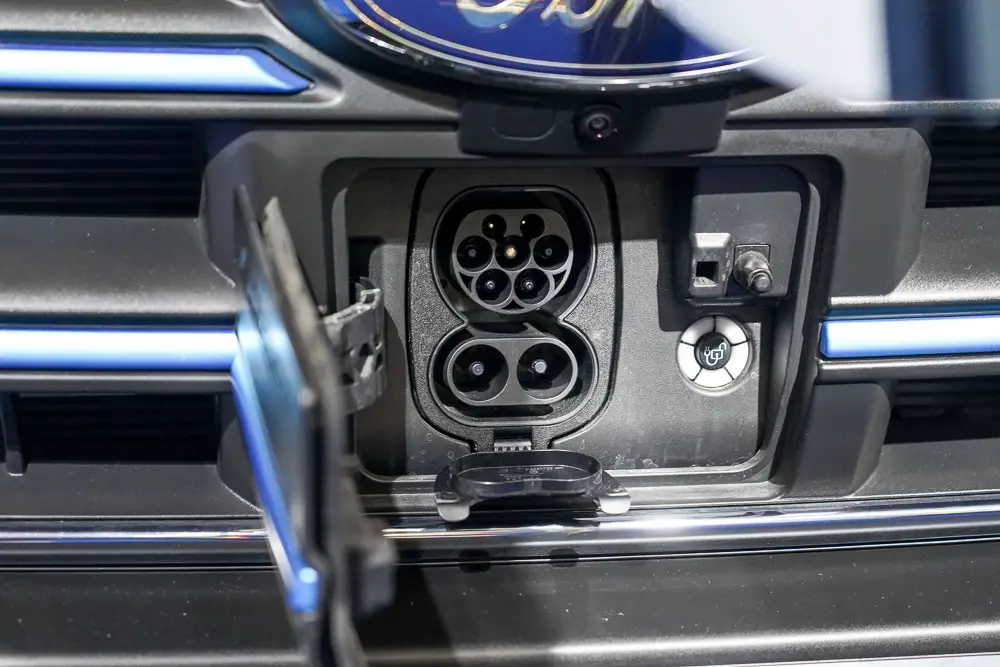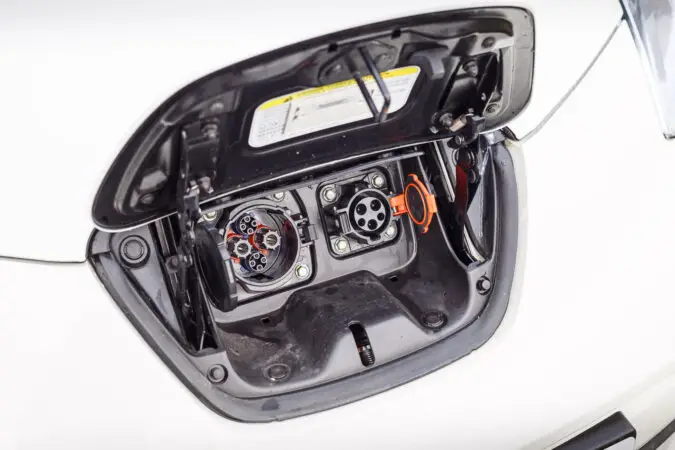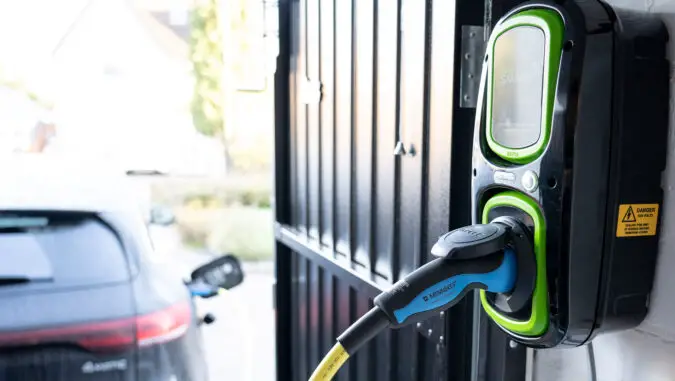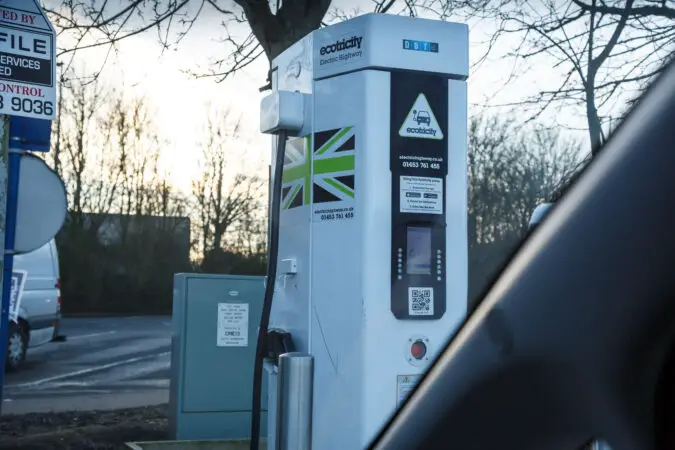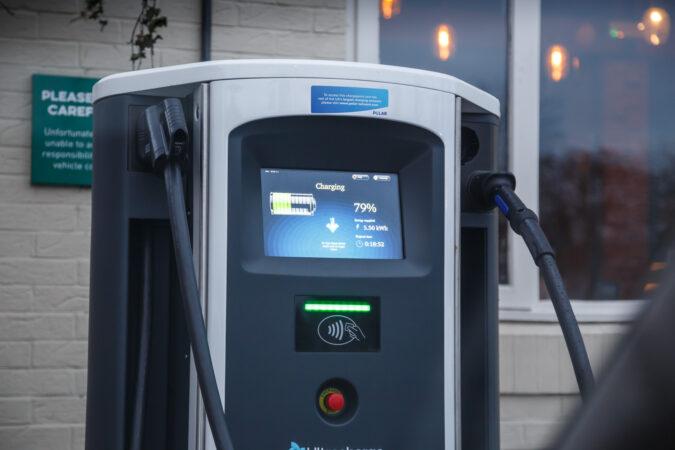Electrification, while it brings countless benefits, also has its many challenges that early adopters like us have to overcome. In particular, there are a lot of concerns over charging – would there be enough chargers to go around, how long would your car last on a charge, as well as the cost of getting an EV charged up. The latter – as to how much to charge electric car UK – is an especially interesting topic.
One of the key benefits of EVs, or so the carmakers claim, is that you’ll save a lot of money on all that charging. It makes sense that raw electricity is far cheaper than petrol or gasoline. But with uncertain times ahead of us and skyrocketing energy bills, is that still the case? So, how much to charge electric car UK… Moreover, what’s cheaper – charging at your home, workplace, or a public charge station?
Before we can thoroughly analyse how much to charge electric car UK, we first have to understand a complex set of factors that determine the underlying costs. Remember, there’s no default or set price that’s associated with charging an EV. In other words, how much I’m paying to charge my EV may be different from how much you’re paying. It all depends on numerous variables, such as…
How Much Does It Cost To Charge An Electric Car UK
- What sort of electric car do you own and drive? Is it a tiny microcar, or a big SUV? Larger EVs, as with their ICE counterparts, use more power to run. Thus, costing you more down the line to charge them.
- When you bought your electric car, does the carmaker in question provide any incentives to ease the price of charging it? Some brands even offer free charging at specific networks with a set mileage.
- How do you drive your electric car? Is it subjected to simple commutes back and forth – a bit of urban scenery, mixed with motorway cruises? Joy-riding uses more power and needs charging more often.
- How’s the energy market looking these days? Alas, this isn’t something that you can control. Though, if the source of the electricity around you is soaring in price, charging an EV will get costlier, too.
- Where are you charging your electric car? Are you charging it at home, have it plugged into a charger at your workplace, or are you visiting a rapid charger? Different charging networks will vary in cost.
- If you are relying on a publicly available charger, what sort of payment options have you opted into? Are you charging on a pay-as-you-go basis, or do you have a subscription plan with that network?
- What time of the day are you charging your electric car? If you’re charging at your home, overnight off-peak hour electricity rates tend to be cheaper compared to plugging in at a public charger.
- Are there any VATs or other taxes imposed on using a public charger? In some parts of the country or with certain councils, they may levy a tax on public street-side charging, which can be rather costly.
Cost Of Charging Electric Car
Now that we’ve gone through the myriad of variables that might impact how much to charge electric car UK, let’s break the prices down for you. In particular, we’ll be looking at some of the most popular methods for charging an EV here in the UK. Including, those who charge at:
- Home – No doubt the most popular method of charging… As you could just plug in your EV at the end of a long day’s worth of commuting, as soon as you reach home. However, while some people simply plug their electric cars into the mains, others have invested in installing dedicated wall chargers.
- Workplace – Organisations and companies can leverage the Government’s schemes that encourage a move towards installing charging points at the workplace. This is made to ease the pain of employees who might live far away. Nevertheless, be wary of how your employers set these charge points up.
- Public Charging Points – If you’re running low on charge while on the move, you could always rely on publicly accessible charging points. You’ll find them in a bunch of places, like plugging the side of the road, or at a supermarket parking lot. Some lampposts and streetlights even have chargers built-in.
- Rapid Chargers – Unlike public chargers that you can access on the side of the street, rapid charging networks are the EV equivalents of a petrol station. Drive up to them, and these rapid chargers can top up your car’s battery from a low state of charge to nearly full in just 30 minutes, or even less.
With our premise set, how do these charging options compare when it comes to how much to charge electric car UK? Spoiler alert, most agree that charging at home and leaving it overnight can be quite cost-effective. But how about the rest…?
Home EV Charger
Just to keep these calculations a bit simpler (which will also apply later) let’s assume that your EV has a battery size of 60kWh. This is the average usable battery capacity for some of the most popular EVs sold in the UK. Not ‘advertised’ battery capacity, but ‘usable’ kWh that you can actually tap into.
To find out how much to charge electric car UK at home, we’ll be multiplying this against the average electricity rate in the UK of 28p per kWh. Nonetheless, remember that electricity rates constantly rise and fall throughout the day, and across an entire billing month. So, here’s how that’ll come out to:
(28p per kWh electricity rate) x (60kWh usable battery capacity) = £16.80
So, that’s £16.80 to charge at home, from the mains, based on the rough average electricity rates. If we’re assuming that this 60kWh is good for 200 miles worth of driving, that’s 8.4p per mile. To keep the costs more well-optimised, here are some tips:
- Charge your electric cars overnight as you sleep. Some energy providers offer lower rates for off-peak hours, such as late at night – on average, around 11p per kWh or as little as just 2p per mile (compare that to 28p per kWh).
- Compare the packages offered by various energy providers. Certain companies might provide a lower electricity tariff rate specifically for EV owners that need to charge up regularly. For example, EDF has its GoElectric35 plan that costs as little as 4.5kWh for EV charging.
- Install a dedicated home wall charger. These can be expensive to acquire and install (£400 at the low end). However, these can charge much faster (either 3.6kW or 7kW, compared to 2.3kW from a 3-pin plug). Plus, there are neat benefits like automated scheduling and safety features.
Workplace Charging Station
Unfortunately, we can’t provide you with a clear quote for how much to charge electric car UK when your EV is plugged in at your workplace. The actual costs or rates will be determined by your employer, so you’ll have to ask them. Varying organisations and companies may set different tariffs for charging.
Here are some of the ways that a company can charge you for using their at-work charging stations:
- Free Charging – Certain employers may allow their staff to charge an EV for free. This is often used as an incentive or perk for employees.
- Time-Based Limits – While your employer might not charge you monetarily for charging, they may set a limit for how long you can do so. This time-based tariff is to ensure that the likely limited number of charging points are shared amongst all employees fairly. Thus, preventing a select few from hogging up the chargers.
- Time-Based Fee – This is rather similar to setting a time limit on how long you can use the chargers. In this instance, you’re allowed to charge up your car for free for a set amount of time – say, 30 minutes. Once the clock ticks over to 31 minutes, you’ll be charged a specific tariff, as you could with using any ordinary public charge point.
Public Charging Stations
If your battery is running low while on the move, you always have the option of charging up using any available public charger. As mentioned, these chargers could be found in a lot of places – streetlamps, shopping centre parking lots, street-side chargers, and more. The difficulty is always finding one.
To make this easier, there are a plethora of apps that you can download, and websites that you could visit. Here, you’ll find maps that show all the available charging points near you, as well as other vital information for using them. Here’s what you should consider before relying on a public charger:
- How should you pay for charging up? Certain charging points require an RFID card to start charging and make payments. Meanwhile, most newer chargers can be paid for using an app.
- Do you need to make a specific account for the provider that runs that charging point? Usually, you’d need to download an app and register for an account before you could start charging.
- What type of socket does that charge point use – i.e. Type 1, Type 2, etc? You’ll need to make sure it could be compatible with your car, although most chargers are standardised.
- What’s the condition or status of this specific charging station? Is it currently occupied by other cars? Or, is it currently out of service? Make sure you ascertain this if you need an urgent charge.
- How fast can those charging points charge? Most charging points are rated at 7kW, although you can find faster 22kW ones. Depending on your car, you could fully charge it in just 2 to 4 hours.
- How much will it cost to charge there? Again, this will differ from one charging point to another. We have seen free-to-use chargers, while others might cost something like £1.50 per hour.
Rapid Charging Stations
When we say ‘rapid’, we mean any charging station that charges at 50kW and up. In some places, it’s as high as 100kW or 150kW. As of late, you might also find 180kW DC fast chargers and higher. That should be enough to get your car up and running in just 30 minutes, depending on the battery.
Usually, most rapid charging stations are found by motorway service stations or along major roads. It works mostly the same as public charge points. As such, you likely need an app to begin the charging, as well as sorting out the payment and so on. However, rapid chargers are significantly more costly.
If you’re wondering about how much to charge electric car UK, rapid charging networks are by far the most expensive option. Although, we can’t provide an exact quote, as each charge network operator will set its own tariffs. In some cases, they’re even free to use:
- Tesla Supercharger – If you own a Tesla, you can use its Supercharger networks for free.
- Carmaker Incentives – When you buy a new EV, some carmakers might offer incentives that allow you to use specific charging networks for free for a set mileage or time. For instance, Mercedes-Benz USA offers EQS owners 2 years’ worth of free charging at select charging stations (in the US).
- Operator-Controlled Tariffs – Otherwise, you’ll have to settle with whatever fees the network provider sets. These will differ significantly, as some of the costlier chargers can cost upwards of £6.50 for just 30 minutes of high-speed rapid charging. Yet, this may still prove cheaper than petrol or diesel.

